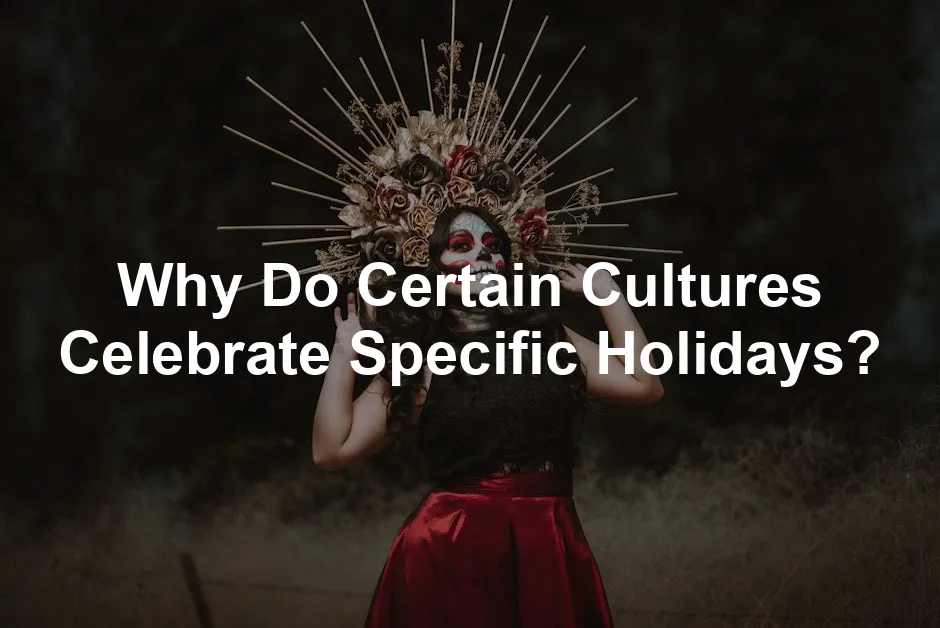
Why Do Certain Cultures Celebrate Specific Holidays?
Introduction
Holidays serve as vital cornerstones of cultural identity. They help people connect with their roots, traditions, and communities. Each holiday embodies unique meanings and rituals, showcasing the vibrant tapestry of human experience. From the colorful parades of Mardi Gras to the solemn observance of Yom Kippur, holidays reflect a rich diversity that spans the globe.
Cultural celebrations often arise from historical events, religious beliefs, or seasonal changes. They unite families, friends, and communities in a shared experience of joy, remembrance, or reflection. Understanding why specific cultures honor certain holidays can provide insights into their values and beliefs.
Exploring the historical, cultural, and personal contexts behind these celebrations reveals how traditions evolve and adapt over time. It’s essential to appreciate the significance of holidays, as they shape collective identities and foster a sense of belonging. Each celebration tells a story, one that connects people to their past while nurturing connections in the present.
Speaking of stories, if you’re looking to dive deeper into the world of holidays, check out The Book of Holidays: Celebrations Around the World. This delightful read will whisk you away on a journey through various cultural festivities and traditions, making you the go-to expert at your next holiday gathering!
Understanding the Diversity of Holidays
The Origins of Holidays
The word “holiday” originates from “holy day,” initially denoting days set aside for religious observance. Many holidays have evolved from these sacred roots into secular celebrations. For example, Christmas and Easter are widely recognized in Christian communities, but their meanings can vary significantly among different groups.
Christmas, celebrated on December 25, marks the birth of Jesus Christ. However, for many, it has transformed into a festive occasion focused on family gatherings, gift-giving, and feasting. Similarly, Easter commemorates the resurrection of Jesus but has also become synonymous with springtime festivities, showcasing colorful eggs and bunnies.
Holidays like Diwali, the Hindu Festival of Lights, symbolize the victory of light over darkness and good over evil. It involves lighting oil lamps, sharing sweets, and enjoying family gatherings. While deeply rooted in religious traditions, Diwali has also embraced cultural aspects, such as community celebrations and regional variations. For an in-depth look at this vibrant festival, grab a copy of Diwali: A Festival of Lights and light up your understanding of this beautiful celebration!
Understanding the origins of holidays provides a glimpse into the diverse ways cultures commemorate significant events and beliefs. From ancient rituals to modern-day festivities, these observations reflect the fabric of society and the shared values of its people. Each holiday serves as a reminder of history, community, and the unique tapestry of human tradition.

Understanding why specific cultures celebrate certain holidays can provide insights into their values and beliefs. why do certain cultures celebrate specific holidays
Regional Variations in Holiday Celebrations
Comparative Analysis of Shared Holidays
Holidays can be a bit like that quirky family member who shows up at every gathering but behaves differently each time. Some holidays are celebrated across multiple countries, yet each culture adds its unique flair. Let’s take a look at two prime examples: Thanksgiving and Mother’s Day.
Mother’s Day Across Cultures
In the United States, Mother’s Day takes place on the second Sunday in May. It’s all about pampering mom with breakfast in bed, heartfelt cards, and perhaps a spa day. This celebration traces its roots back to early 20th century activism, thanks to Anna Jarvis‘s efforts to honor her mother. The day has since morphed into a commercial bonanza, complete with flowers and brunches.
Meanwhile, the UK celebrates Mothering Sunday on the fourth Sunday of Lent. This tradition has a more religious flavor. Originally, it involved returning to one’s mother church for a special service. Over time, it evolved into a day to show appreciation for mothers with gifts and meals, often including a delicious roast. So, while both holidays celebrate mothers, the U.S. version is a commercialized affair, while the UK’s is steeped in historical significance.

Thanksgiving Traditions
Thanksgiving is another holiday that showcases regional quirks. In the U.S., it’s celebrated on the fourth Thursday in November. This day commemorates the Pilgrims’ feast with Native Americans in the early 1600s. Families gather around the table for turkey, stuffing, and pumpkin pie, while watching football and possibly arguing over politics. If you’re looking for some delicious recipes to elevate your Thanksgiving feast, consider adding The Complete Book of Christmas: Recipes, Crafts, and Traditions to your collection!
In Canada, Thanksgiving occurs on the second Monday in October, marking the end of the harvest season. While the essence of gratitude remains, the Canadian version is generally more low-key. Canadians focus on family time, enjoying a meal that may include turkey but also features local dishes like butter tarts and poutine. Different dates, similar themes, yet entirely distinct vibes.
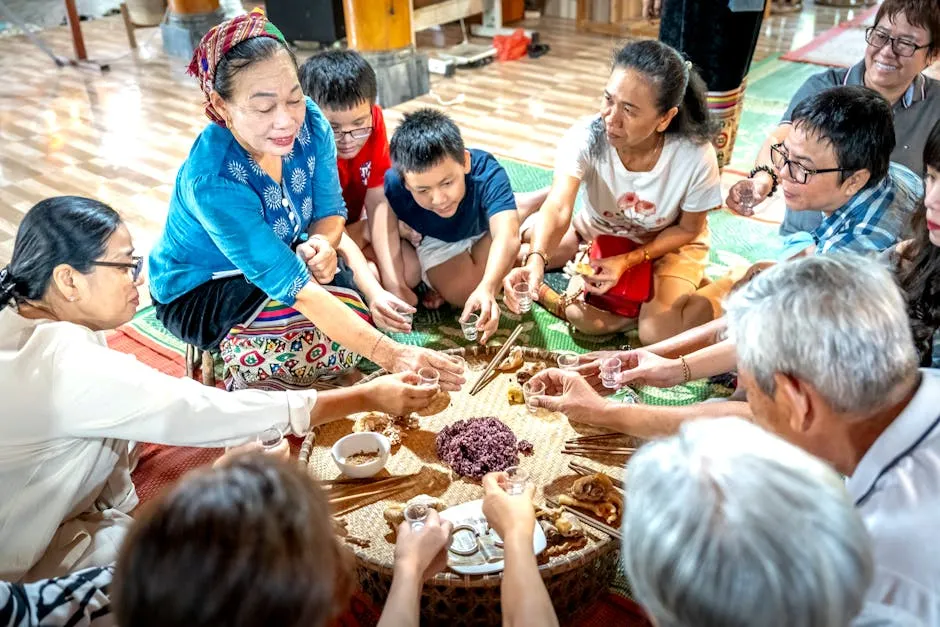
Unique Cultural Celebrations
Holidays worldwide are a delightful mess of customs, flavors, and traditions. Each celebration serves as a cultural marker, showcasing what is most important to a society. For instance, Diwali, known as the Festival of Lights, is celebrated in India with fireworks, sweets, and family gatherings. It symbolizes the victory of light over darkness and good over evil.
Similarly, the Lunar New Year is celebrated in various Asian cultures. Chinese New Year features colorful parades, dragon dances, and family feasts, while Vietnamese Tet emphasizes fresh starts with special foods and customs. Each culture celebrates the arrival of spring differently, but the underlying message of renewal is universal. To explore more about these vibrant celebrations, check out The Ultimate Guide to Celebrating Lunar New Year.
Regional holidays, such as Kwanzaa in the U.S. and Obon in Japan, reflect the values and beliefs of their communities. Kwanzaa celebrates African heritage and culture, while Obon honors ancestors with lanterns and traditional dances. These unique holidays remind us of cultural diversity and the beauty of shared human experiences.
Understanding these variations enriches our appreciation for the world’s tapestry of traditions. Each holiday, in its unique way, invites us to participate in a celebration of life, love, and community, reminding us of what makes us human.
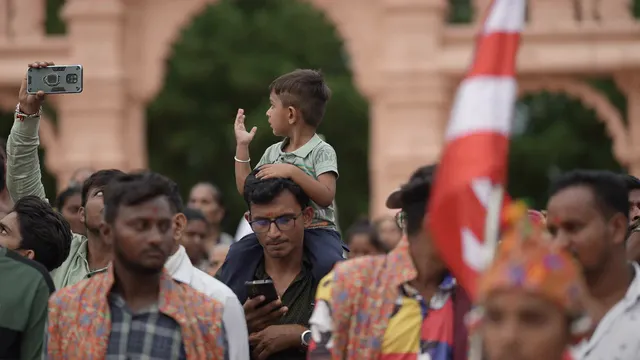
Historical Context of Holidays
Evolution of Holidays Over Time
Holidays are like a historical play, showcasing the drama of human experience. They weren’t always about festive dinners and gift exchanges. Many have deep roots in significant historical events. Take, for example, the influence of colonialism. When European powers colonized various regions, they often imposed their holidays. This resulted in a blend of traditions. Indigenous practices morphed, adapting to new influences while maintaining core elements.
Consider Independence Day in the United States. It commemorates the Declaration of Independence in 1776. However, similar celebrations exist in many nations, reflecting their historical struggles for freedom. Each country adds its unique flavor to the observance. It’s fascinating how one historical event can inspire diverse celebrations worldwide.
Migration also plays a crucial role in holiday evolution. People carry their traditions to new lands, creating vibrant cultural mosaics. For instance, the Lunar New Year is celebrated globally, with communities in places like the United States and Australia putting their spin on it. The original customs blend with local flavors, resulting in lively festivals that honor tradition while being uniquely modern.
Globalization further complicates this tapestry of celebrations. Today, you can find Christmas decorations in places where Christmas isn’t traditionally celebrated. The holiday has transcended its religious origins, becoming a commercial phenomenon. This transformation raises questions about the meaning of holidays. Are they still about connection and spirituality, or have they become mere marketing opportunities?
The impact of these forces is profound. Holidays evolve alongside societal changes, reflecting the ever-shifting values and beliefs of cultures. As societies become more interconnected, the lines between local and global celebrations blur, leading to fascinating new traditions that honor the past while embracing the future.
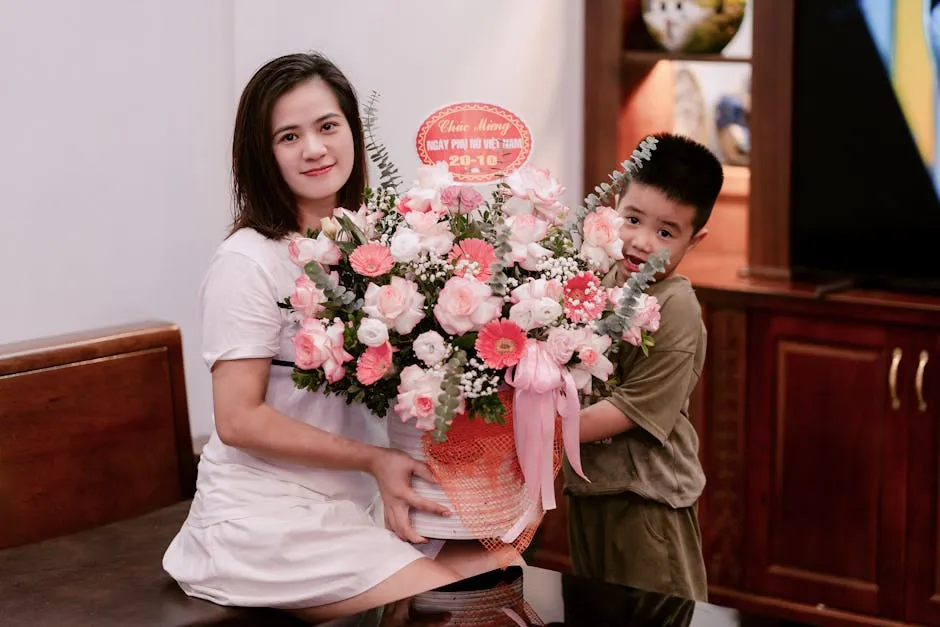
The Role of Festivals in Cultural Heritage
Festivals are the vibrant threads weaving cultural heritage together. They play an essential role in preserving identity and traditions. When communities come together to celebrate, they reinforce their values and beliefs. Festivals allow people to reconnect with their roots, fostering a sense of belonging. Each dance, song, and dish shared during these celebrations carries meaning.
Take Diwali, the Festival of Lights. For many Hindus, it’s not just a celebration of lights; it’s a reminder of the spiritual journey towards knowledge and enlightenment. Similarly, Ramadan emphasizes reflection, charity, and community. During this month of fasting, Muslims come together for prayers and meals, reinforcing their bonds. If you’re curious about the culinary traditions during Ramadan, check out The Joy of Baking: Holiday Treats for Everyone.
Rituals and traditions pass down through generations, adapting while remaining true to their essence. This adaptation is crucial; it ensures that cultural heritage remains relevant. For example, while traditional foods may be served during festivals, new recipes often emerge, reflecting contemporary tastes and lifestyles.
Community festivals, like Kwanzaa or Carnival, also serve as platforms for storytelling. They highlight historical narratives and cultural significance, allowing participants to learn and appreciate their heritage. In this way, festivals become living histories, teaching younger generations about their cultural legacy.
As cultures navigate an increasingly globalized world, festivals provide a sense of stability. They remind us of our shared humanity and the beauty of our differences. By participating in these celebrations, individuals contribute to a collective identity. This vibrant expression of culture not only enriches communities but also fosters understanding and respect among diverse populations.
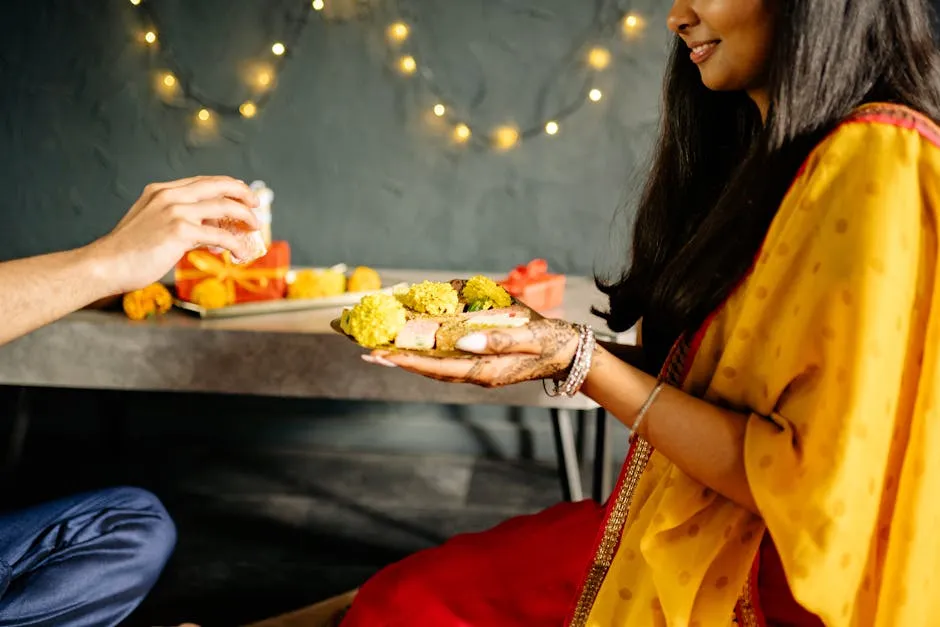
Personal and Familial Traditions
The Influence of Family on Holiday Celebrations
Family traditions shape how holidays are celebrated. Each family adds its unique twist to established festivities. For example, consider a family where work schedules dictate when celebrations occur. Imagine a nurse who can’t celebrate Thanksgiving on Thursday. Instead, she hosts a feast on Friday. This flexibility doesn’t diminish the holiday spirit; it simply shifts it to accommodate life’s realities.
In my friend’s household, Christmas is celebrated with a twist. They mix traditional turkey with spicy tacos. Why? Because one family member is a chef specializing in Mexican cuisine. This fusion creates a delightful new tradition. Every year, they gather to enjoy both dishes, sharing stories and laughter. It’s a reminder that holidays can evolve, reflecting the diverse backgrounds of family members.
Anecdotes like these illustrate how families adapt. Personal customs can transform the meaning of a holiday. For instance, a family might celebrate Hanukkah with a twist, blending traditional menorah lighting with a modern twist like a virtual gathering for those far away. This adaptation keeps the holiday relevant and engaging, connecting loved ones despite distance.
Moreover, some families embrace multiple cultural traditions. A family of mixed heritage might celebrate Diwali with Indian dishes while also honoring Christmas with festive decorations. This variety enriches their celebrations, showcasing the beauty of cultural diversity. To explore more about how different cultures celebrate, consider reading Holidays Through History: A Cultural Perspective.
As we navigate life’s challenges, the essence of holiday celebrations adapts. Families find ways to keep traditions alive, even when faced with obstacles. Whether it’s changing the date, merging customs, or inventing new ones, the core remains: connection, love, and celebration.
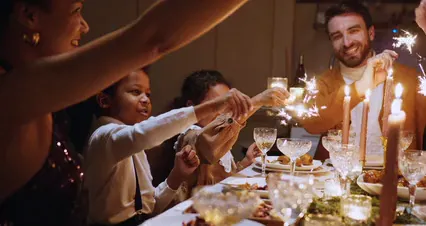
Celebrating Cultural Diversity Through Food and Customs
Food plays a central role in holiday celebrations. It’s the heart of every gathering, igniting joy and connection. Think about Thanksgiving. The meal isn’t just about turkey; it symbolizes gratitude. Families gather to share dishes, each with its story. Grandma’s secret stuffing recipe becomes a cherished tradition passed down through generations.
Similarly, during Diwali, sweets and savory snacks take center stage. Families prepare traditional dishes like samosas and gulab jamun. These culinary delights symbolize the victory of light over darkness, bringing people together in joyous celebration. The act of cooking and sharing food fosters a sense of community and belonging. If you’re looking for some festive recipes, The Joy of Cooking: Holiday Recipes for Every Occasion has you covered!
Cultural diversity shines through holiday foods. In some cultures, specific dishes are essential. For instance, during Lunar New Year, dumplings represent wealth, while fish signifies surplus. These foods are not just meals; they hold cultural significance. They embody stories and traditions that connect families to their heritage.
Consider Ramadan, where iftar meals break the fast. Sharing dates and hearty dishes fosters connection among family and friends. The communal aspect enhances the experience, creating lasting memories. These culinary practices teach us about empathy and sharing, reinforcing community bonds.
Food also acts as a bridge. When people from different cultures come together, they share their culinary traditions. A potluck during holidays can showcase a delightful array of dishes. Imagine a table filled with tamales, curry, and baklava. Each dish tells a story, sparking curiosity and conversation.
In this way, food becomes a universal language. It transcends cultural boundaries, inviting everyone to partake. Celebrating cultural diversity through food unites us, reminding us of our shared humanity. Whether through traditional recipes or innovative fusions, food enriches our holiday experiences and strengthens our connections with one another.

The Role of Religion in Holiday Celebrations
Religious Holidays and Secular Observance
Religious holidays often intertwine with secular observance. Many festivals stem from religious origins but have transformed over time. For instance, Christmas, rooted in Christianity, has adopted various secular elements. It’s no longer solely about the birth of Jesus; it’s also about Santa Claus, gift-giving, and festive decorations. This blend allows people of different backgrounds to celebrate together.
In secular societies, navigating religious holidays can be tricky. Some individuals may not practice the religion but still participate. Take Easter; for many, it’s about egg hunts and bunny-themed treats. Those who celebrate might not connect with the religious significance. Yet, the festive spirit remains.
Consider how communities celebrate Ramadan. Many non-Muslims join in for iftar meals, appreciating the cultural aspects while respecting the religious origins. This participation fosters understanding and respect, bridging gaps between diverse groups.
As societies evolve, secular adaptations of religious holidays continue to grow. Events like Diwali are celebrated by various cultures, transcending religious boundaries. People gather to enjoy the lights and festivities, regardless of their beliefs.
Religious holidays also serve as reminders of history and tradition. They provide an opportunity for individuals to reconnect with their roots. This connection fosters a sense of belonging and identity. Even those not practicing the faith can find value in the celebration. For those interested in the historical significance of holidays, check out The History of Religious Holidays: A Comprehensive Guide.
The intersection of religious and secular observances opens doors for dialogue. It encourages individuals to share experiences and learn from one another. By embracing the secular aspects of religious holidays, communities can celebrate diversity while honoring traditions. This balance enriches the human experience, fostering unity in diversity.
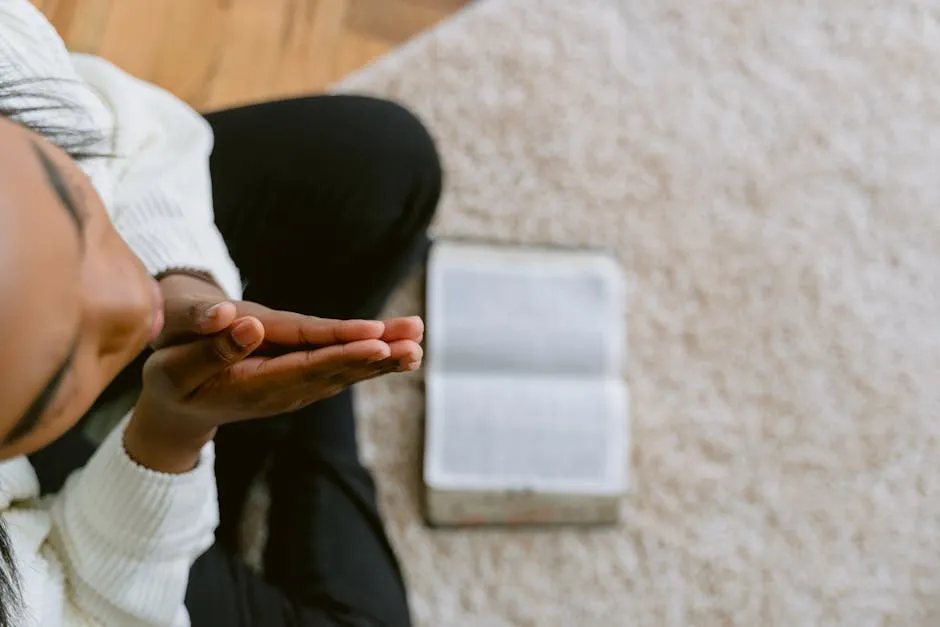
Religious Holidays Adapted for Broader Cultural Contexts
Many religious holidays find themselves wearing a new hat in secular societies. Take Christmas, for instance. Originally a Christian celebration, it has transformed into a global phenomenon. In many places, it’s less about the birth of Jesus and more about festive cheer, gift exchanges, and family gatherings. People don’t have to attend church to enjoy the holiday spirit. Instead, they bask in twinkling lights and enjoy eggnog, often unaware of the deeper significance.
Another example is Easter. While it commemorates the resurrection of Jesus, many celebrate it with egg hunts and chocolate bunnies. The religious aspect can sometimes feel overshadowed by springtime festivities. This adaptation shows how religious observances can morph into broader cultural celebrations, inviting everyone to join in the fun.
Diwali, the Festival of Lights, also illustrates this trend. Rooted in Hinduism, it celebrates the victory of light over darkness. However, in various cultural contexts, it has evolved into a celebration enjoyed by people of all backgrounds. Fireworks, sweets, and community gatherings create an inclusive atmosphere where everyone can partake, regardless of religious affiliation.
These adaptations highlight the fluidity of cultural practices. They allow people from different backgrounds to celebrate together, fostering a sense of community. As traditions evolve, they create spaces where joy and connection take precedence over rigid observance.

The Importance of Respectful Participation
Celebrating holidays from cultures one does not belong to can be a double-edged sword. On one hand, it can foster understanding and connection. On the other, it risks appropriating traditions without appreciating their significance. Engaging with cultural celebrations requires a level of awareness and respect.
Understanding the cultural significance of holidays is essential. Take Lunar New Year, for instance. It’s a time for family reunions, honoring ancestors, and celebrating new beginnings. If someone participates without grasping its meaning, they might miss the heart of the celebration. Similarly, Passover, with its deep historical roots, involves specific rituals that honor Jewish identity. Joining in without understanding could lead to oversimplifications or missteps.
Respectful participation means learning about the holiday’s customs and values. It’s about approaching these celebrations with an open heart and a desire to connect, rather than merely joining the festivities for entertainment. Engaging in conversations, asking questions, and being mindful of traditions can create a more enriching experience for everyone involved.
In a multicultural world, fostering a sense of respect and curiosity toward others’ traditions can strengthen our global community. It reminds us that celebrating diversity is not just about joining in the fun but also about honoring the rich histories and values behind each holiday. By doing so, we contribute to a more inclusive and understanding society.
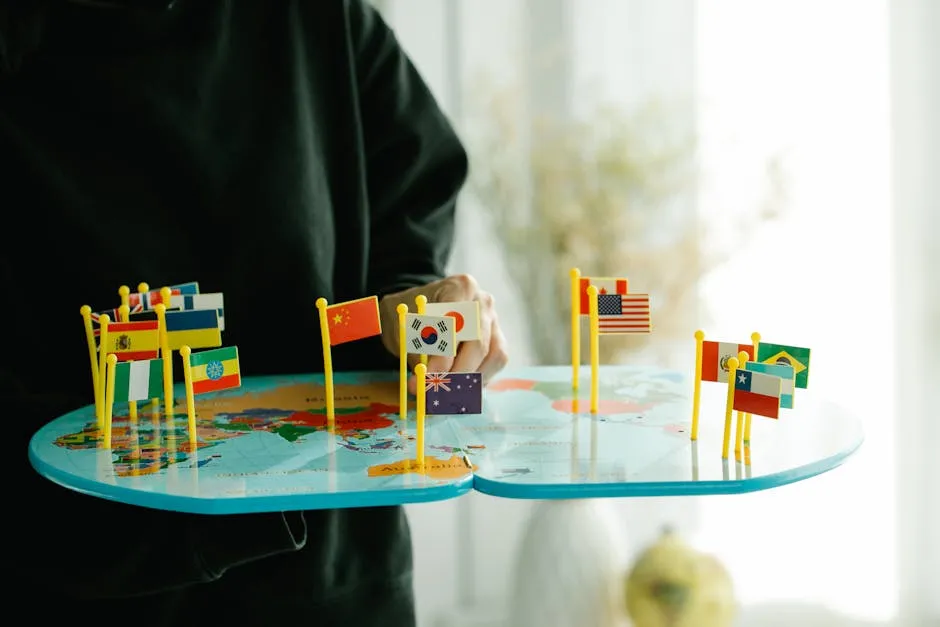
FAQs
Why do different cultures celebrate the same holiday on different dates?
Different cultures often celebrate the same holiday on various dates due to historical and calendrical differences. For instance, Christmas is celebrated on December 25 in most Western countries, while some Orthodox Christians observe it on January 7, following the Julian calendar. Similarly, Easter’s date varies because it’s determined by the first full moon after the vernal equinox. These discrepancies reflect the unique historical and religious contexts of each culture.
What are some common themes found in holidays worldwide?
Many holidays across cultures share common themes such as gratitude, rebirth, and community. For instance, Thanksgiving in the U.S. emphasizes gratitude for the harvest, while Diwali represents the triumph of light over darkness. Lunar New Year celebrates renewal and familial bonds. These themes highlight universal human experiences, reinforcing the idea that, despite our differences, we often seek similar joys and connections.
How can one respectfully participate in a cultural holiday not their own?
Respectful participation involves several key practices. First, learn about the holiday’s significance and traditions. This can include research or conversations with those who celebrate. Second, observe any specific customs or rituals with care. For example, refrain from taking photos during solemn moments. Finally, approach the celebration with an open heart, ready to listen, share, and engage meaningfully. This respectful attitude fosters genuine connections and enriches the experience for everyone involved.
What are some examples of lesser-known holidays worth celebrating?
Several lesser-known holidays deserve recognition. For example, Holi, the Hindu Festival of Colors, celebrates the arrival of spring and the victory of good over evil with vibrant powders and joyous festivities. Another is Kwanzaa, an African American holiday honoring heritage and cultural values with seven principles celebrated from December 26 to January 1. Additionally, Lunar New Year, celebrated in various Asian cultures, marks the start of spring and includes unique customs and delicious food. Exploring these holidays can expand our understanding and appreciation of diverse cultures.
Please let us know what you think about our content by leaving a comment down below!
Thank you for reading till here 🙂
All images from Pexels




